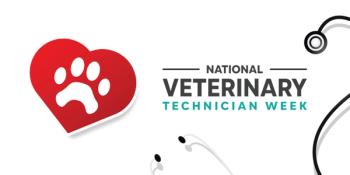
Analysis of Ultra-Trace Minerals in Commercial Dry Dog Foods
How does exposure of ultra-trace minerals in dogs compare with than in humans?
Major and trace minerals in commercial pet foods are regulated by the National Research Council and the Association of American Feed Control Officials. However, these organizations are not known to observe ultra-trace minerals, which include aluminum, chromium, nickel, molybdenum, and silica, and there are no regulatory requirements for these minerals. Exposure to ultra-trace minerals, such as aluminum and hexavalent chromium, in high concentrations can be harmful.
Due to lack of dietary guidelines for these minerals, researchers at Cornell University College of Veterinary Medicine conducted a
Study Design
The investigators collected samples of over-the-counter dry dog foods (n = 49) formulated to maintain healthy dogs at all life stages. Foods were obtained from Cornell University Veterinary Medical Center (n = 1), local pet food retailers (n = 12), national pet food retailers (n = 24), and grocery stores (n = 12). Samples were stored at room temperature and analyzed within 1 week of purchase.
RELATED:
- FDA Warns of Possible Link Between Grain-Free Dog Foods and Heart Disease
- Immune-Stimulating Properties of Probiotics​​​​​​​
Samples were prepared in triplicate and trace minerals quantified by inductively coupled plasma-atomic emission spectroscopy. Results were normalized to an yttrium internal standard, converted to consumption per megacalorie, and compared with average chronic human consumption and toxic values from the World Health Organization. For ease of comparison across brands, results were normalized against the manufacturer’s calculated food energy density and expressed as mg/1000 kcal of metabolizable energy (ME). Data were analyzed for Guassian distribution via Shapiro-Wilk and quantile plots.
Results
Aluminum, chromium, and molybdenum concentrations in the selected dog foods were higher than those of a human’s daily intake. The median concentration of chromium in maintenance dog food was 0.47 mg/1000 kcal ME (range, 0.17-2.05 mg/1000 kcal ME). This is about 30-fold higher than the daily intake in humans, based on a 2900-kcal diet. The highest molybdenum concentration found in this study was about 15 times higher than the range of human intake, and all foods analyzed were above the estimated values needed. Concentrations of aluminum in 46 of 49 foods were above daily human intake, and the highest concentration recorded was approximately 38 times that of average human consumption levels. The remaining ultra-trace minerals, nickel and silica, displayed less significant differences when comparing both human and dog daily intake.
Conclusion
From the data presented, it appears that dogs are exposed to higher concentrations of ultra-trace minerals through commercially available diets compared with average human consumption values. The implications of higher exposures are unknown at this time, but the levels reported in this study appear safe in dogs.
Excess chromium has been reported to cause liver damage and gastroenteritis, high levels of nickel can cause gastrointestinal irritation, and excess silica may contribute to silica urolithiasis in certain breeds. Aluminum is known to accumulate in the body and is considered a toxin; however, aluminum hydroxide is routinely used to bind phosphorus in patients with renal insufficiency, and the levels found in this study are far below the published dose recommendations of aluminum hydroxide (10-30 mg/kg/day).
It’s possible that the higher levels of ultra-trace minerals found in this study are due to manufacturing processes of dog foods and higher metabolic requirements of dogs compared with humans. Although aluminum, chromium, and nickel toxicities are documented, further studies are needed to assess the bioavailability of these minerals and determine if exposure at the levels found in this study are harmful to dogs.
Dr. Bohn received her PhD and MS from Georgia State University and has been a practicing veterinary nurse for nearly 20 years. Ms. Stoessel is a veterinary assistant and medical writing intern. They provide freelance medical writing services through Bohn Communications, LLC.
Newsletter
From exam room tips to practice management insights, get trusted veterinary news delivered straight to your inbox—subscribe to dvm360.






